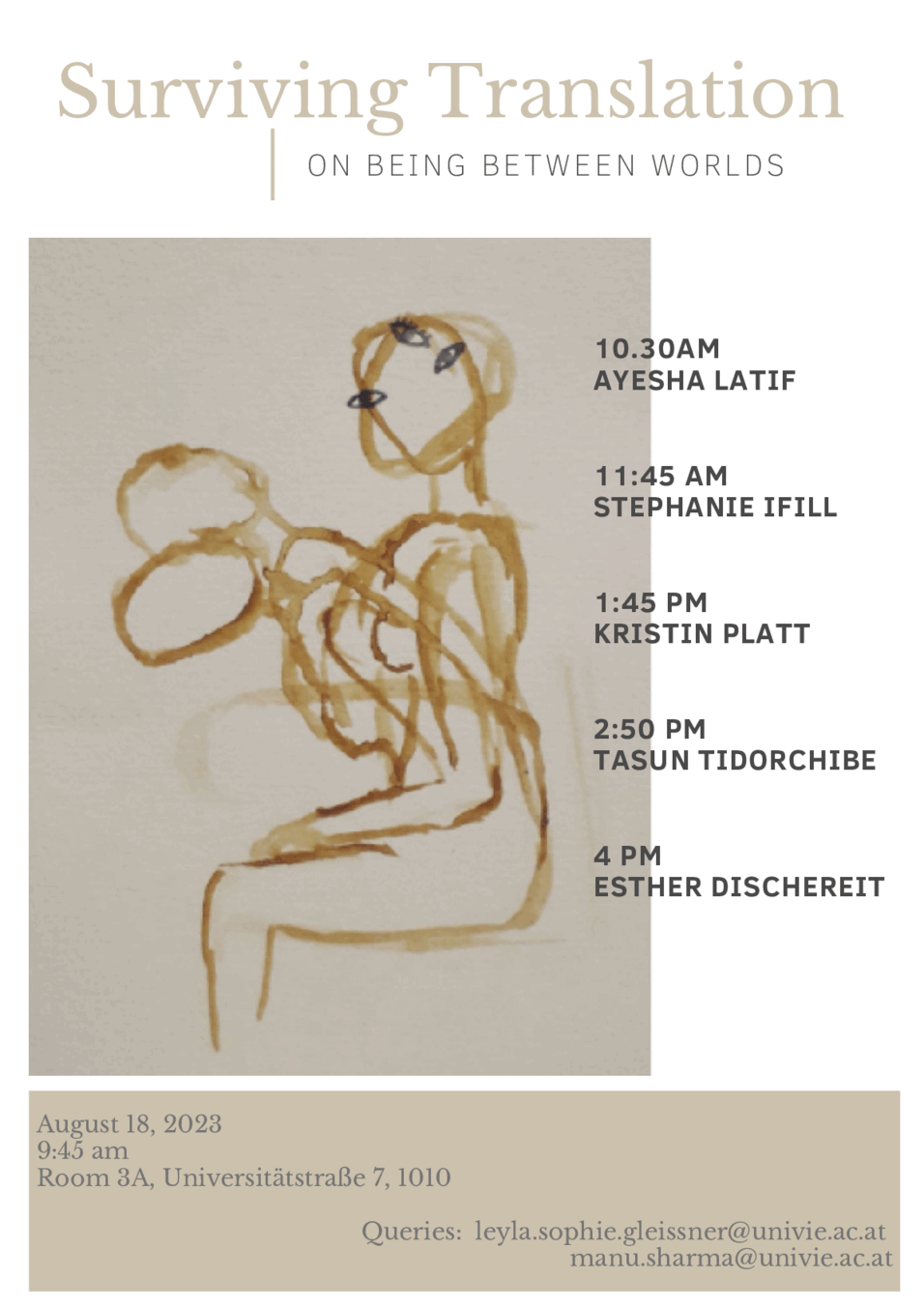Room 3A, Universitätstraße 7, 1010
Contact: leyla.sophie.gleissner@univie.ac.at and manu.sharma@univie.ac.at
Abstract
Translation is usually understood as a linguistic practice of reconstituting sense. Following such a definition, the sense of an original text or language should be neatly transferred to a second. Thus, the aim of such practice is usually defined in terms of closeness and sameness of the first and the secondary textual material. In this workshop, we would like to shift the focus to the temporal and lived dimension of translation as well as to the ethical and political effects of the latter: instead of reducing translation to acts of textual preservation of sense, it should additionally be conceived as transformative practices of translations between various lived worlds and temporalities. Given that the conditions of translation are often determined by existing inequalities between cultural and historical contexts, the act of translation takes on a political dimension. Rather than preserving textual sense, translation can, in its social and political dimension, imply necessary acts of resistance against personal, collective and historical hegemonic erasure. In addition, such acts of translation can be a matter of survival, as practical contexts of exile and/or trauma make clear.
Surviving Translation not only points to the work of preventing other worlds, languages and temporalities from disappearing but also includes the risk of a loss of such worlds, languages and temporalities through translation. For this workshop, we intend to invite a set of inter and transdisciplinary researchers with a multiplicity of languages, worlds, histories and lived realities to discuss these questions in relation to their research as well as their experiences of conducting translational work in an academic context. Hence, given the limitations to polyphonic theorising in academia, this event aims at reflecting on the creative processes of coming to live, think, and theorise while moving between and being entangled with different worlds – both in the geographical and the existential and social sense of the term. In fact, working between borders and at the margins of fixed categories and material realities, we would like to collectively discuss questions such as: what does conducting translational work imply? What can we learn from each other's practices? To what extent does translation foster the survival of our various worlds? And finally, how to survive the loss of parts of our lived worlds, languages and temporalities, a loss that is a necessary part of translational work?

